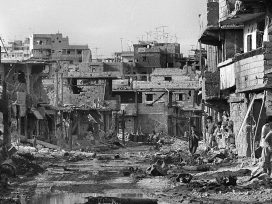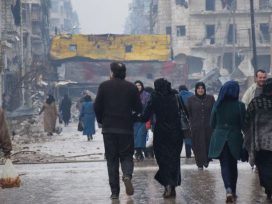Abstracts for Esprit 1/2007
Jean-Pierre d’Halluin, François Maury, Jean-Claude Petit & Chantal de Singly
Power and operational structures in hospitals
Power in a hospital is composed of a double hierarchy, the administrative and the medical. In a bid to prevent any competitive logjam between the two, the 2005 reform of “governance” in French hospitals is an opportunity to bring the medical and the management visions together and to contrast them.
Jacques Dubin
What room for patients?
Hospital staff are expected to take patients’ views into account, but what does that mean in practice? Since 2002 French law emphasizes users’ individual and collective rights, but can this enhance mutual trust between users and professionals?
A panel discussion with Didier Dreyfuss, Antoine Garapon, Guillaume le Blanc & Jean-Marc Morin
The judiciary vs medicine: What type of liability?
Before we begin to worry over the potential for a US-style constant threat of legal liability hovering over French hospitals, we must assess the cases where patients have sued hospitals or doctors, or sought recourse against them. Are they on the rise? Are they driven by any punitive intent? If we are to skip the judiciary altogether, mutual respect must be restored, which in turn requires transparency and an ability to recognize difficulties, and even mistakes.
Jean-Paul Saint-André & Isabelle Richard
Is the crisis in medical demography a delusion?
The demographic structure of the medical profession in France is bound to change over the coming years, but this does not mean that we are going to face a shortfall. At the same time, the practical conditions of the profession will play a major role, as the distribution of surgeries across the country is very likely to be uneven in terms of specialities and sectors of activity.
Yves Deugnier
The future of clinical research in hospitals
Clinical research is an integral part of the mission of a hospital, but it is running into various obstacles, such as lack of interest among professionals, a lack of time and of adequate funding, stricter ethical controls, and, above all, the globalization of research. Still, the type of organization that prevails in France features a number of strengths that are only waiting for the health system to take advantage of them.
Alain Lepape
The quality of care, risk management, and hospital-acquired infections
Having come under bitter criticism amid the brouhaha caused by cases of hospital-acquired contamination or infection, the health professions must get to grips with, and better incorporate, the notion of risk, which in this area takes on a number of very specific features. How could the notion of risk improve the quality of care?
A panel discussion with Patrick Brun, Laurent El Ghozi, Agnès Ricard & Alain Tyrode
Emergency wards, the territory, and access to care
Emergency wards are sure to strike a chord in the media and the political sphere alike, and to patients they sometimes epitomize the day-to-day functions of hospitals. And yet the development of A&E wards cannot be separated from the overall trends in care management and its continuation in a specific area. Do people rush to A&E departments as a default solution? Could a health policy encourage an alternative route for access to care?
Didier Dreyfuss & François Lemaire
Life endings: For an understanding between patients and physicians
Beyond the media campaigns over euthanasia and mercy killings, dying in hospital is a banal reality. Why should one die in this way? What impact does this have on rapport with hospital staff? Can laws provide a framework for the management of care for those with only a few days left to live?
An interview with Paulette Guinchard & Sylvie Legrain
Grand old age and its dependency
An ageing population combined with a rise in the number of centenarians and the risk of the dependency of the aged will turn grand old age into a focal point for public health policies and management over the next several years. And yet, even though a number of schemes are beginning to be deployed, reflection and research have hardly started over an issue that belongs as much to the social and cultural as to the medical spheres.
Czeslaw Milosz
Poems
In these two poems so far unpublished in French, the Nobel Prize laureate ponders over the strange and “unremitting pursuit” that drives him into writing poetry. Whether he directs his verse at American poet Allen Ginsberg or he depicts courtesans in Venice, he speaks of the vain and absolute nature of his art: “Nothing, but beauty.”
An interview with Paul Thibaud
Joseph Conrad and colonial Africa
Conrad’s Heart of Darkness continues to shed critical light on the colonial era. Besides brutal control, what defines that era is also its idealistic streak, or the inevitable corruption of a willingness to expand one’s power while at the same time displaying generosity.
Corinne Enaudeau
Levinas and Lyotard: A political debt
Jean-François Lyotard took Emmanuel Levinas’s teachings head-on. But then he shifted them slightly: Whereas Totality and Infinity calls upon the transcendence of “the other man”, “the one who has me penetrated by what does not penetrate”, J.-F. Lyotard turns “exteriority” into the external agent of a “break-in” that reverberates into all fields of experience, including not just ethics but politics as well. In this sense, Lyotard’s indebtedness to Levinas’s ethics gives rise to a disagreement over their respective understandings of the nature of politics.
Published 23 January 2007
Original in French
Contributed by Esprit © Esprit
PDF/PRINTNewsletter
Subscribe to know what’s worth thinking about.



